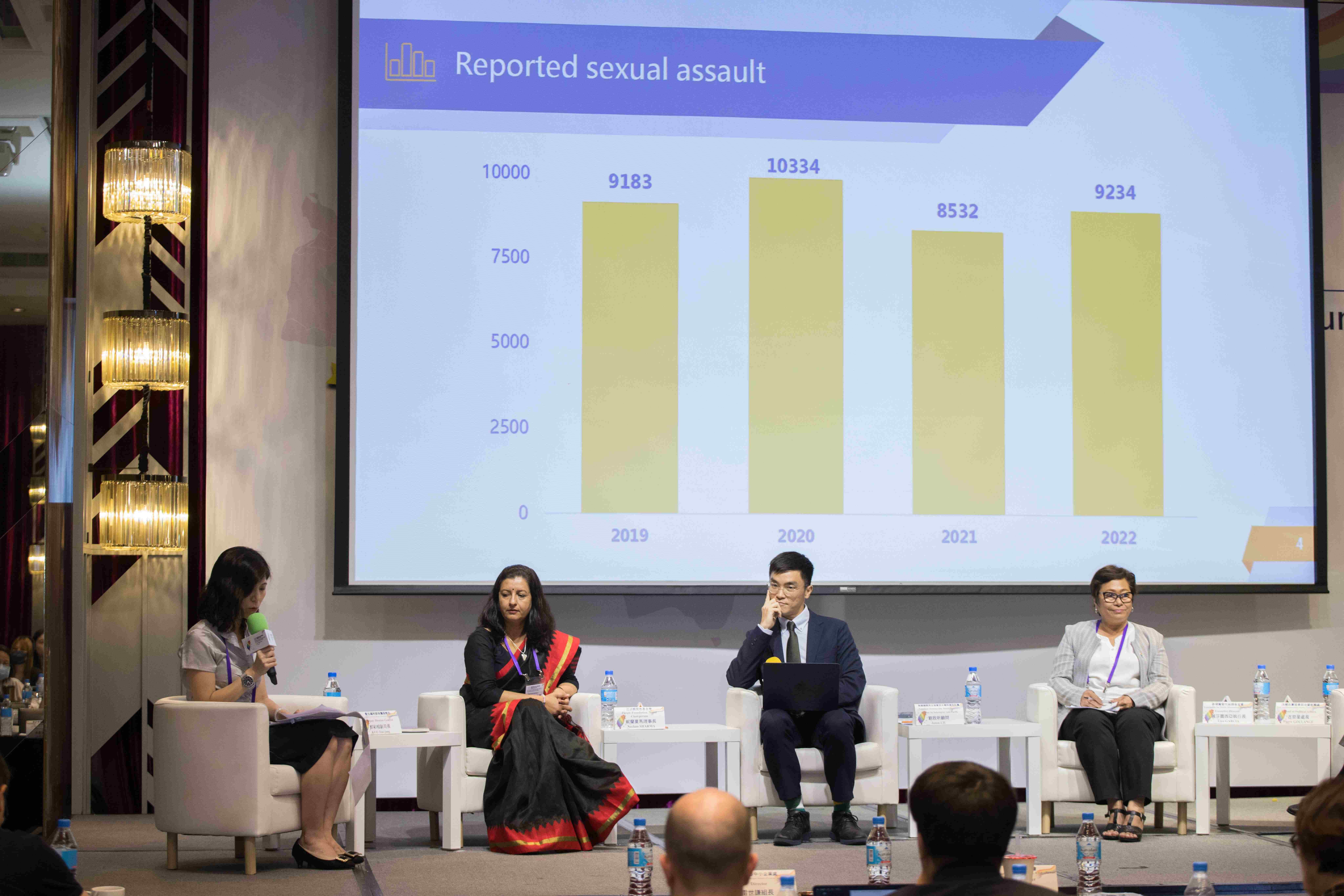Events
- Publish on :2 years ago
- Author:Admin
Gender Equality Issues During and Post the Pandemic - Preventing Gender-Based Violence
Representing Purple Foundation on EU- Taiwan Gender Equality Forum, Neelam Sharma, drew attention to the urgent issue of gender equality in the digital world and its intersection with the COVID-19 pandemic. Despite the global growth in internet users, a significant gender gap persists, particularly in developing countries, leaving approximately 2.9 billion people at risk of being excluded from the digital revolution.
She underscored the alarming statistics that highlight the prevalence of online gendered violence, which exacerbates the challenges faced by marginalized women, intersecting with other forms of discrimination like casteism, racism, disabilities, homophobia, and transphobia. She presented research conducted in Nepal among women and LGBTQIA+ political leaders, revealing the distressing reality of gendered violence in politics. Shockingly, 91% of respondents reported its prevalence, with 28% facing online gendered violence and 63% experiencing misinformation and hate speech during elections.
The consequences of such violence are profound, silencing women, minority, and LGBTQIA+ leaders, undermining human rights, good governance, and inclusive democracy. Ms. Sharma stressed the necessity of relearning and reconstructing social values and norms while advocating for intersectional interventions in technology to address these issues effectively.
To address this pressing concern, she proposed several opportunities for action. Recognizing online gendered violence as a serious problem and developing legal frameworks to combat it are essential steps. Emphasizing the importance of prevention efforts, digital literacy promotion, and ensuring safe digital spaces for all can foster positive change. Challenging the social norms that perpetuate violence, providing comprehensive support services for victims, and equipping law enforcement with adequate training were emphasized as crucial components of the solution.
In her impassioned speech, Ms. Sharma also highlighted the critical role of responsible and accountable journalism and media in shaping public opinion and attitudes towards gender equality. Greater political commitment is necessary to bring about meaningful change, and collaboration between governments, tech companies, and civil society is imperative to effect lasting progress.
In conclusion, Neelam Sharma's powerful message urged all stakeholders to unite in creating a digital world that embraces gender equality and empowers individuals regardless of their backgrounds or identities. By addressing online gendered violence, fostering digital inclusivity, and challenging discriminatory norms, societies can move towards a more equitable and just future.

Gender Equality Issues During and Post the Pandemic - Preventing Gender-Based Violence